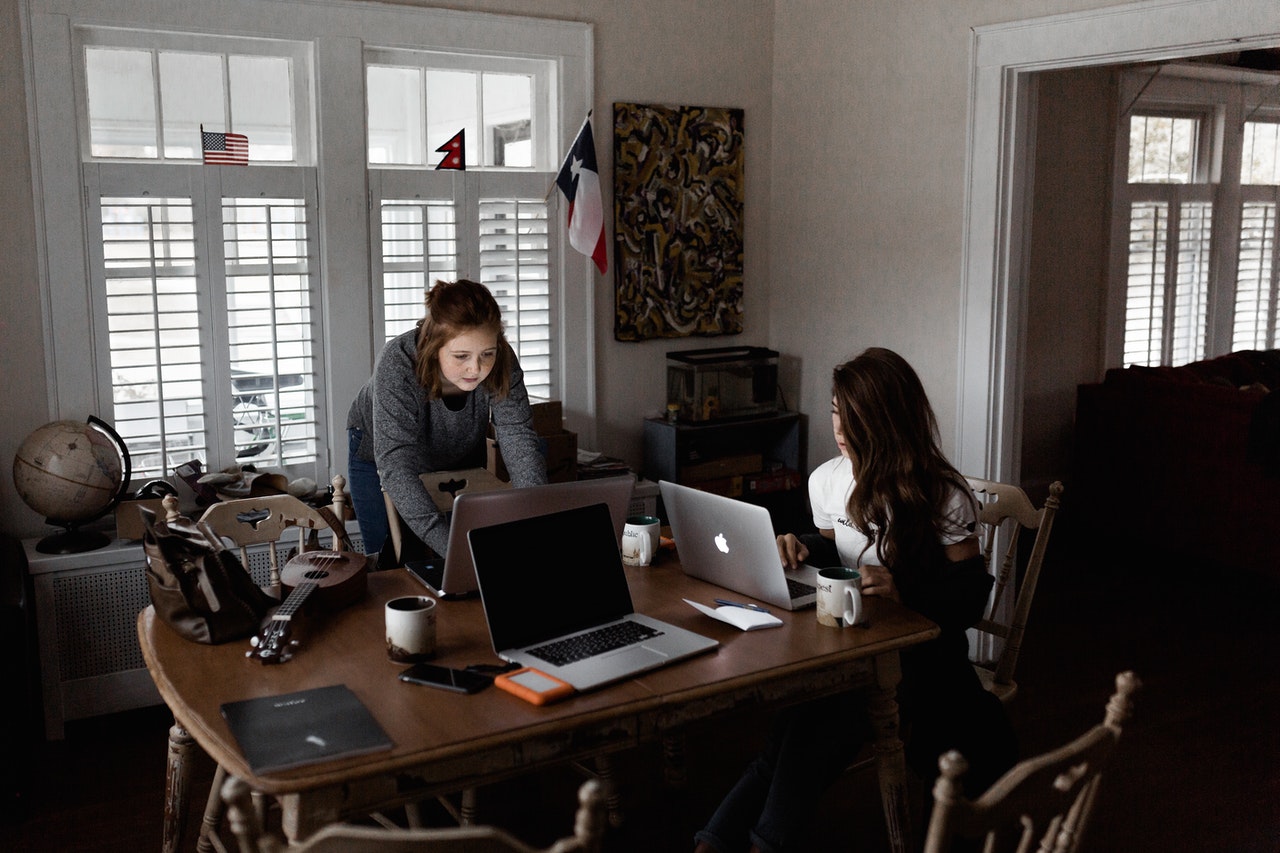

We’ve all had those horrible, no-good days at work. Your alarm didn’t go off and you arrive late. You get the riot act from a boss or customer. You can’t focus — no matter how hard you try. Maybe even worst of all, no matter how hard you try you just can’t do anything right.
It’s no surprise then that you become so stressed about work that you declare that your job is killing you. Of course, you don’t mean this literally, right? Well, research may have your back on this one.
Research published in the Annals of Internal Medicine found that those “who sat for longer periods of time without any breaks were more likely to die early from all causes of death.” More recently, Stanford business professor Jeffrey Pfeffer, and author of Dying for a Paycheck, argues that your job isn’t just a necessary evil. It’s actually a death sentence.
In an interview for Insights by Stanford Business, Pfeffer said, “I look out at the workplace and I see stress, layoffs, longer hours, work-family conflict, enormous amounts of economic insecurity. I see a workplace that has become shockingly inhumane.”
I know this sounds like a lot of doom and gloom, but there’s a silver lining here. There are plenty of ways that you can live a healthier lifestyle at work — which isn’t just good for your health, it will also make you more productive.
Need a starting point? Then here are 20 ways that you can prevent your office from literally killing you.
1. Stop sitting all day.
12 hours. That’s how long the average person sits all day. As a result, sitting has become the fourth leading risk factor for global mortality resulting in 3.2 million deaths annually. Even if you exercise, you’re still in danger of falling victim to the “sitting disease.”
While you probably can’t stand on your feet for the entire work day, you should at least alternative between standing and sitting every 30 minutes. The easiest way to do that is by investing in a standing desk.
You can also start hosting standing meetings. Besides improving your health, research shows that standing meetings are more creative, collaborative and productive than sitting ones.
When you do have to sit, make sure it’s in an ergonomic chair since this can help with your posture.
2. Start a “four o’clock stretch” tradition.
This is a great idea from the folks over at Behance.
Every day at 4pm the team takes a break from work to do a few simple yoga stretches. These stretches are simple enough that you don’t need to change your clothes, equipment, or training. Best of all, you can do them in the office.
The reason the Behane team does this in the afternoon is because it helps them recharge and improve their moods when energy is waning. Additionally, these stretches can help reduce anxiety, clears your head, release neck and shoulder tension, and help loosen you help after you’ve been sitting all-day.
3. Work out at your desk.
As you know, exercise is kinda important. But, what if you don’t have the time to hit the gym? You can actually squeeze in a workout directly at your desk.
It may seem a little awkward, but you can absolutely do one-minute sprints of activity throughout the day. Try a couple of triceps dips, push-ups, squats, and lunges. Here’s a handy list of 25 desk-friendly exercises you can start doing today.
4. Take “active breaks” throughout the day.
If you haven’t done so yet, start building breaks into your schedule. Ideally, you should take a 5-10 minute break every 90 minutes so that you can refresh your mind.
But instead of remaining at your desk clearing out your inbox, go for a short walk around your building or the block. It’s a simple way to burn some calories and relieve tension.
5. Work out with your colleagues.
I’ve found that when it comes to exercise self-motivation is my biggest hurdle. That’s why I like working-out with someone else. We motivate and hold each-other accountable. So, why not take that concept and apply to your office?
Find a colleague who wants to go to the gym during lunch. Maybe start a fitness club, like doing push-ups before you eat. Or, start or join a local intramural league.
6. Take walking meetings and calls.
As long as you don’t need to access a computer screen, consider taking your meetings outside. You get the blood flowing, burn some calories, and get to enjoy the outdoors — which has proven to reduce stress and improve your physical and mental health.
Even if you don’t have a meeting, you can still walk while returning your phone calls.
7. Turn your commute into a workout.
If possible, start cycling, jogging, or walking to work. If it’s too far of a commute, you can still make this possible. Let’s say you take the subway. Instead of getting off at the closest exit, get off at the exit before so that you have to walk more. If you drive, then park as far away from your building as you can.
8. Take the stairs.
Instead of taking the elevator or escalator to your floor, start walking up the stairs. It’s a simple and effective way to get your heart rate up. Also, science says that it will also make you smarter.
9. Practice healthy computer habits.
Most of us spend a majority of the day glued to a computer screen. This can put a strain on our neck, back, head, and eyes. To combat this, start practicing the following healthy computer habits:
- Incorporate regular stretching into your work routine.
- Eat healthy office snacks.
- Get up and go for a walk.
- Vary tasks like reading, keyboarding, filing, etc.
- Reduce strain by keeping your knees bent at 90 degrees, keeping your eyes level within range of the top third of the screen, and using ergonomic computer accessories
10. Invest in a stress-relief toy.
Frustrated? Relieve that stress by taking-it out on a stress-relief toy, like the following gizmos and gadgets. Remember, stress is a silent killer, so any little way to help alleviate it should be embraced.
11. Breathe.
This may sound new-agey, but the truth is that breathing techniques can improve your health. How? Well, breathing techniques are able to reduce stress, increase your energy, and minimize muscle tension throughout the day.
So, instead of pouring another cup of coffee, try the “Bellows Breath,” to make you more alert. When you feel stressed out, take a break and partake in focused, abdominal breathing.
12. Block out personal time.
All work and no play makes Jack a dull boy. I’d throw in a girl proverb here too — but I’d get complaints…
When scheduling your time, don’t forget to block out personal time for things like reading, grabbing lunch with a friend, meditating, getting a message, watching a YouTube video, or walking your dog.
Even wasting your time by sitting there and doing nothing is good for you. That’s because it gives your brain a chance to rest, sparks creativity, energizes you, and lowers stress level.
13. Unplug.
Technology is a blessing and a curse. It’s made it possible to work whenever and wherever you like. The catch? It’s made it possible to work whenever and wherever you like.
Because we’re attached to our phones, we’re expected to be on-call 24/7. That doesn’t just make you more stressed-out, it also makes it impossible to rest and recharge.
You may not be able to do this much during the day, but when you come home from work don’t hesitate to turn off your electronics until tomorrow morning. During the weekend leave your gadgets behind when you go hiking or camping.
While in the office, at least unplug during certain times of the day, such as during lunch or when meditating in the afternoon.
14. Stare out your window.
Here’s another powerful and easy way to decompress and reduce stress. Look out your window and stare at a tree. Science has proven that just looking at greeny can calm your nervous system, as well as make you feel better overall.
Don’t have access to mother nature? Get a plant and put it in your office. It’s better than nothing.
15. Take a quick nap.
Don’t feel guilty about sneaking in a little afternoon nap. It can be good for you.
“I consider napping to be a good thing, but it needs to be taken in the context of the person and his or her own sleep cycles and body,” says Charlene Gamaldo, M.D., medical director of Johns Hopkins Sleep Disorders Center.
Research has found that napping, especially in older adults, had better word recall and figure drawing — a sign of good memory and cognition respectively. Ideally, you should a 20-40 minute cat between one p.m. and four p.m.
16. Get out of town.
“It’s very beneficial to get away for a long vacation that will help you recharge your ‘batteries,'” says Jonathan Kramer, a clinical psychologist and president of Business Psychology Consulting. “Vacations help reduce stress and get your mind off work, especially if you’re having a conflict, such as a problem with your boss, a co-worker, or a project.”
Can’t get away for a long vacation? Kayla Sloan recommends in another Calendar article that you take a daycation.
“A daycation is sort of like a vacation except it’s shorter. You take just the day to do something fun either on your own or with friends or family,” writes Kayla.
“Taking even a short break can ease your stress levels and get you through hard times at work. When you can’t take off during the week, scheduling a one day break can recharge you.”
17. Eat more sensibly.
Offices aren’t exactly known for offering healthy food options. The thing is, there’s nothing wrong with having the occasional slice of pizza. It’s eating four slices of pepperoni pizza daily that’s not doing you any favors. Remember, everything in moderation.
However, eating more sensibly means making smarter decisions and being prepared. For starters, have a healthy and filling breakfast, like oatmeal and blueberries.
Pack your lunch that consists of something like a salad, fruits and veggies, and a lean protein. If you need a snack, keep healthier options like almonds or kale chips nearby.
18. Stay hydrated.
It’s suggested that “women should drink 90 ounces (11 cups) of fluids per day and men should drink 125 ounces (16 cups) per day.” Staying hydrated increases brain power by improving cognitive skills, memory, and attention. It can also give you an energy boost, flushes out toxins, promotes healthy weight management, and boots your immune system.
19. Wash those hands.
Will this prolong your life? I’m not 100 percent certain. But, one rumor says washing your hands is the best way to prevent yourself from getting sick. Make it a habit to wash your hands before you eat, after using the restroom, and after you cough or sneeze.
If wouldn’t hurt to keep hand sanitizer at your desk either. It’s a quick solution to keeping your hands clean if you can’t get away from your desk.
20. Keep your workspace hygienic.
It’s been found that the average desk contains 400 times more germs than a toilet seat. Gross.
Do yourself, and all all of your colleagues, a favor and keep your workspace clean and tidy. I schedule the last five minutes of my day to organize my desk so that all of my work items are organized. I also wipe down my workspace with disinfectant wipes. And, I never eat at my desk.











Howie Jones
My name is Howie and I'm a Customer Success Manager at Calendar. I like to ensure our customers get the best experience using our product. If you have questions email me howie at calendar.com